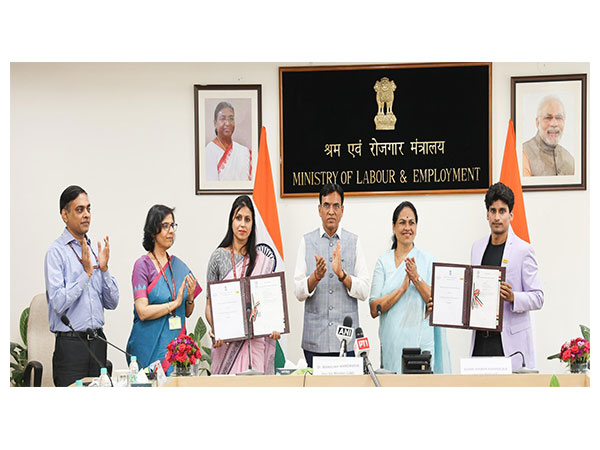Space economy will grow five-fold in next 10 years, be around USD 44 bn: Jitendra Singh
Aug 17, 2024

New Delhi [India], August 17 : Union Minister Dr Jitendra Singh, Minister of State (Independent Charge) for Science and Technology and Earth Sciences emphasized that the advancements are positioning India as a leading force in the private space industry, with Rs. 1,000 crore invested in 2023 alone. The space economy is projected to grow fivefold over the next decade, reaching USD 44 billion.
Dr Singh, hailed the Budget 2024-25 announcements related to the space sector as visionary, with the potential to revolutionize India's position in global space exploration and the private space industry.
According to Department of Space, Dr Jitendra Singh highlighted that the Modi government has freed the space sector from its past limitations, with the credit going to Prime Minister Narendra Modi. He explained that for 60-70 years, the space industry operated under a self-imposed secrecy that limited access to resources and knowledge, despite India's abundance of talent.
Dr Singh described the 2023 New Space Policy as a turning point, allowing private companies to engage in ISRO activities for the first time. Prior to this, In-SPACe was established in 2020 as a bridge between the government and private sectors, followed by the creation of New Space India Limited for the production and assembly of launch vehicles.
The Minister expressed excitement over the rapid growth of the space sector, noting that while there was only a single-digit number of startups in 2021, that figure has now risen to nearly 300, many of which have achieved global recognition.
He pointed to AgniKul Cosmos, which has set up a private launchpad within ISRO's facilities, and Skyroot, which completed the first private sub-orbital launch. These developments have attracted attention from international players like SpaceX.
Regarding job opportunities, Dr Singh mentioned that India's talent pool, previously limited to opportunities abroad, now has ample avenues for employment and entrepreneurship within the country.
He referenced an institute in Thiruvananthapuram that provides space technology education, with graduates previously seeing 60-70 per cent placement at NASA. Today, there are not only job prospects but also chances to launch startups, opening new pathways for livelihoods.
On upcoming ISRO missions, Dr Singh mentioned the highly anticipated Gaganyaan mission, which was delayed by COVID-19 but is now set for next year, with trial flights already in progress.
He also shared plans for a female humanoid robot named Vayumitra, scheduled to be launched into space in 2025 to perform astronaut tasks and return to Earth.
If successful, India could send a human into space by late 2025. Additionally, an Indian Space Station is planned for 2035, with the goal of landing an Indian astronaut on the moon by 2040.




















